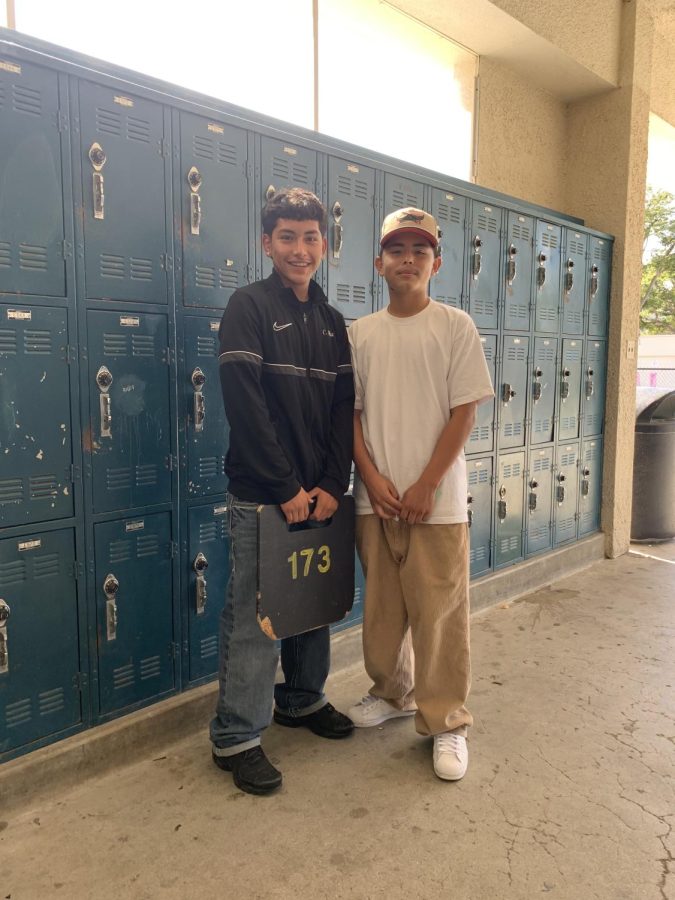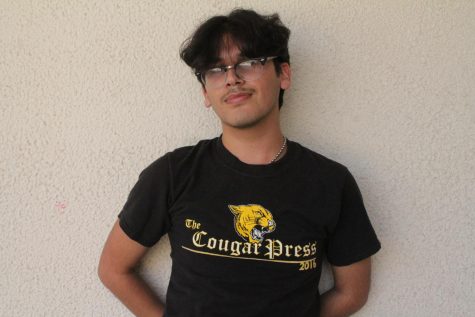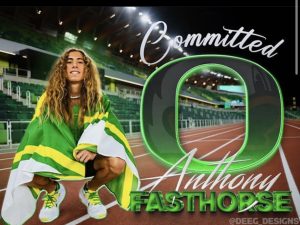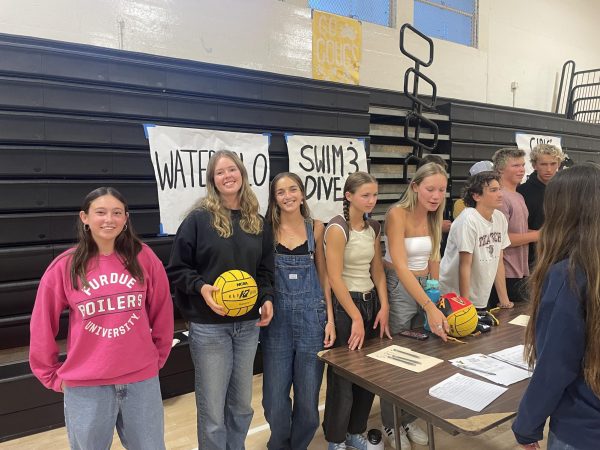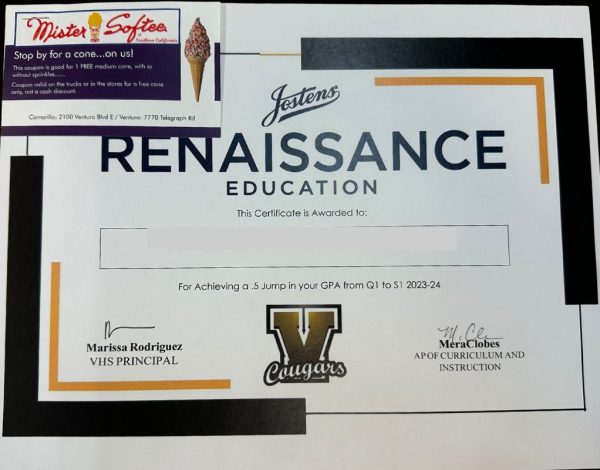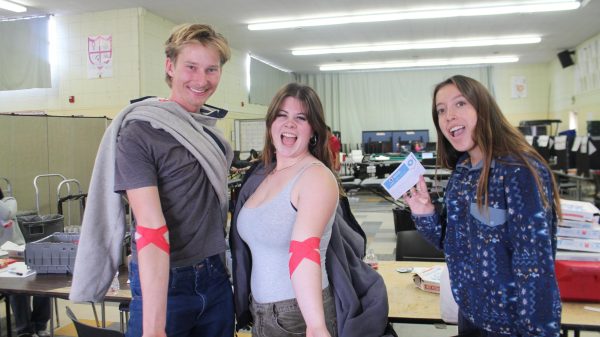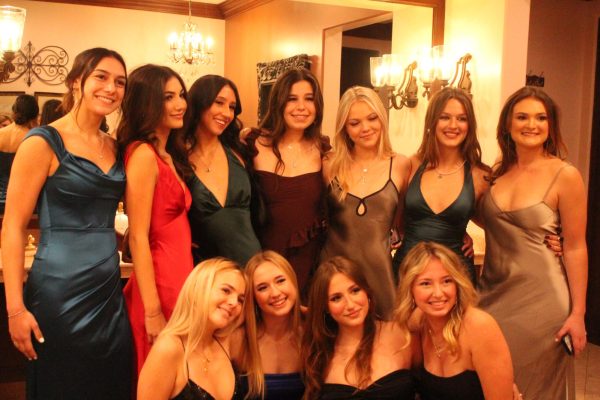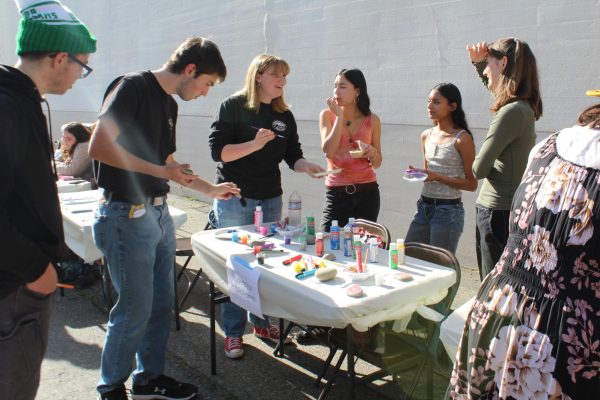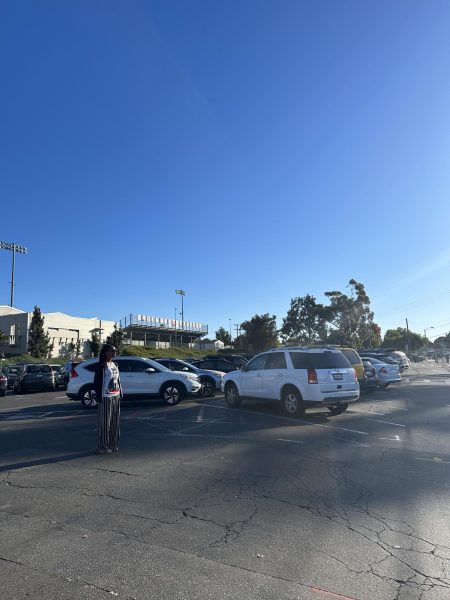Opinion: Edgar nation stand up!
Christopher Rea ’26 (center-left) and Joseph Ramirez ’26 (center-right) wearing the stereotypical “Edgar” outfit. Photo by: Alexis Segovia
October 21, 2022
The term “Edgar” has been coined as a joke, but is it more than that to the people that it is targeted at?
The rise of social media has brought rise to various trends and microtrends. From mini-skirts to low-rise jeans, social media platforms such as Snapchat, Instagram and most of all TikTok, have made sure to have trends known and seen. Many, if not most, know the term “Edgar” when they hear it. Along with this comes various opinions on whether or not the term is controversial, laughed at or even taken as a compliment.
“[Having a] certain hairstyle. It’s puffy, and they run their hands through their hair, they have that white powder stuff that they put in their hair,” said Nathan Riner ‘26.
The white powdery stuff Riner described is a hair styling powder that is commonly seen in Latino culture. This is when the controversial question arises; is the term “Edgar” targeted towards Hispanic culture?
Josh Garcia-Andreas ‘23 has been called an “Edgar” before but does not take offense to the label. “I don’t know, [I would describe them as] regular Mexican kid. Hats, pro clubs (a popular brand of sweats) and jeans,” he said.
“They’re pretty funny, they walk around funny, some sag, some don’t … and they’re wannabes,” said Eddie Ramirez ‘23.
Ramirez later said that he’s been referred to as an “Edgar” many times throughout all his four years of high school.
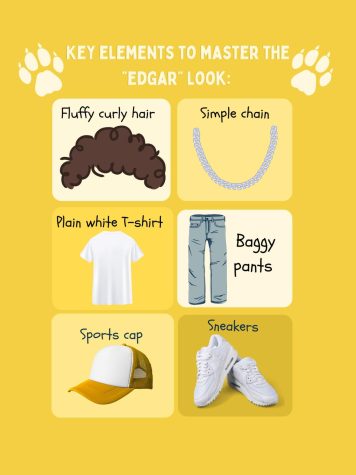
The walk Ramirez mentioned is a prominent characteristic in social media posts about the “Edgar” phenomenon. The image social media has created leaves many teens identifying “Edgars” as the stereotypical Mexican kid, just like Garcia-Andreas described himself. The issue of whether or not the term is offensive arises when trends such as this one are highlighted in pop culture.
When making an effort to answer the question of whether or not there is an underlying issue with stereotypes and the media, a new inquiry arises. Did the “Edgar” movement spawn a large social media response, or has social media created the “Edgar” phenomenon?
Not all feel that the term “Edgar” is a term to use when making fun of someone or describing a wannabe. A wannabe would mean being someone who wants to fit in and oftentimes, forms a personality around a certain trend to fit characteristics of the people they want to be around.
Victor Lopez ‘23 said, “I would describe myself like an Edgar honestly.”
This opinion varies on social media platforms. The term is labeled and can be argued as controversial for some while others have the same perspective as Lopez.
Ultimately, the term “Edgar” can be offensive from individual to individual. Many people see it as a compliment, while others see it as a person who wants to fit into the stereotypical “Edgar” phenomenon.




